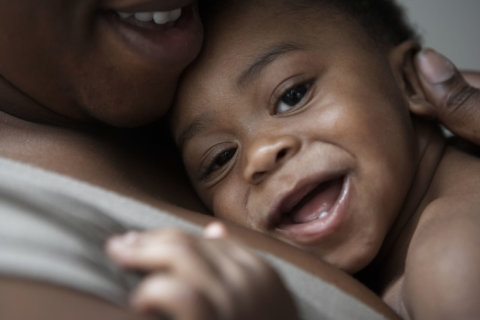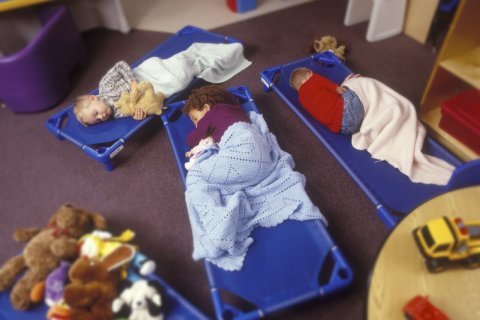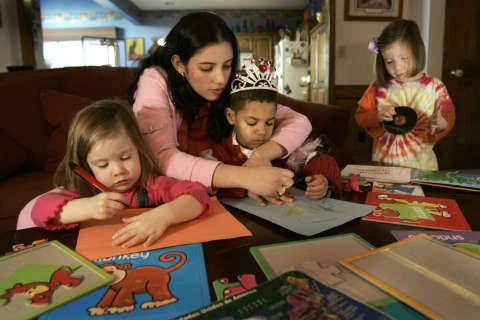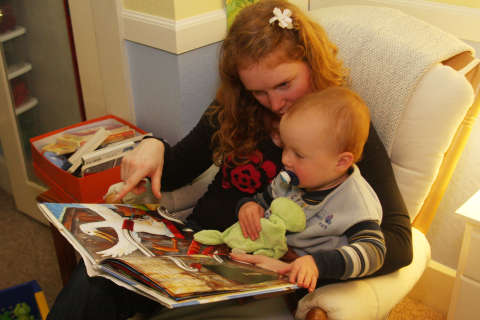Parents with babbling babies and tireless toddlers pushed strollers onto Capitol Hill on Tuesday, bringing a playful atmosphere outside and a serious message to Congress about rising child care costs.
Unlike “Rolling Thunder” — which will bring motorcycles rumbling through the nation’s capital during Memorial Day weekend — this was the relatively new “Strolling Thunder,” with crying and cooing babies in strollers gliding around the grass.
The event started a few years ago and has the support of many members of Congress, including House Speaker Nancy Pelosi, who spoke at the rally.
Families trying to balance work with raising kids say it’s getting more and more difficult without breaking their household budgets. Hundreds came from across the country to let lawmakers know how much they care about issues such as affordable child care and federally paid leave for parents.
“It was cost prohibitive for me to work, to find quality child care for our kids,” said Erika McKenney, of Topsham, Maine. She was holding her baby while her husband rounded up their three other children.
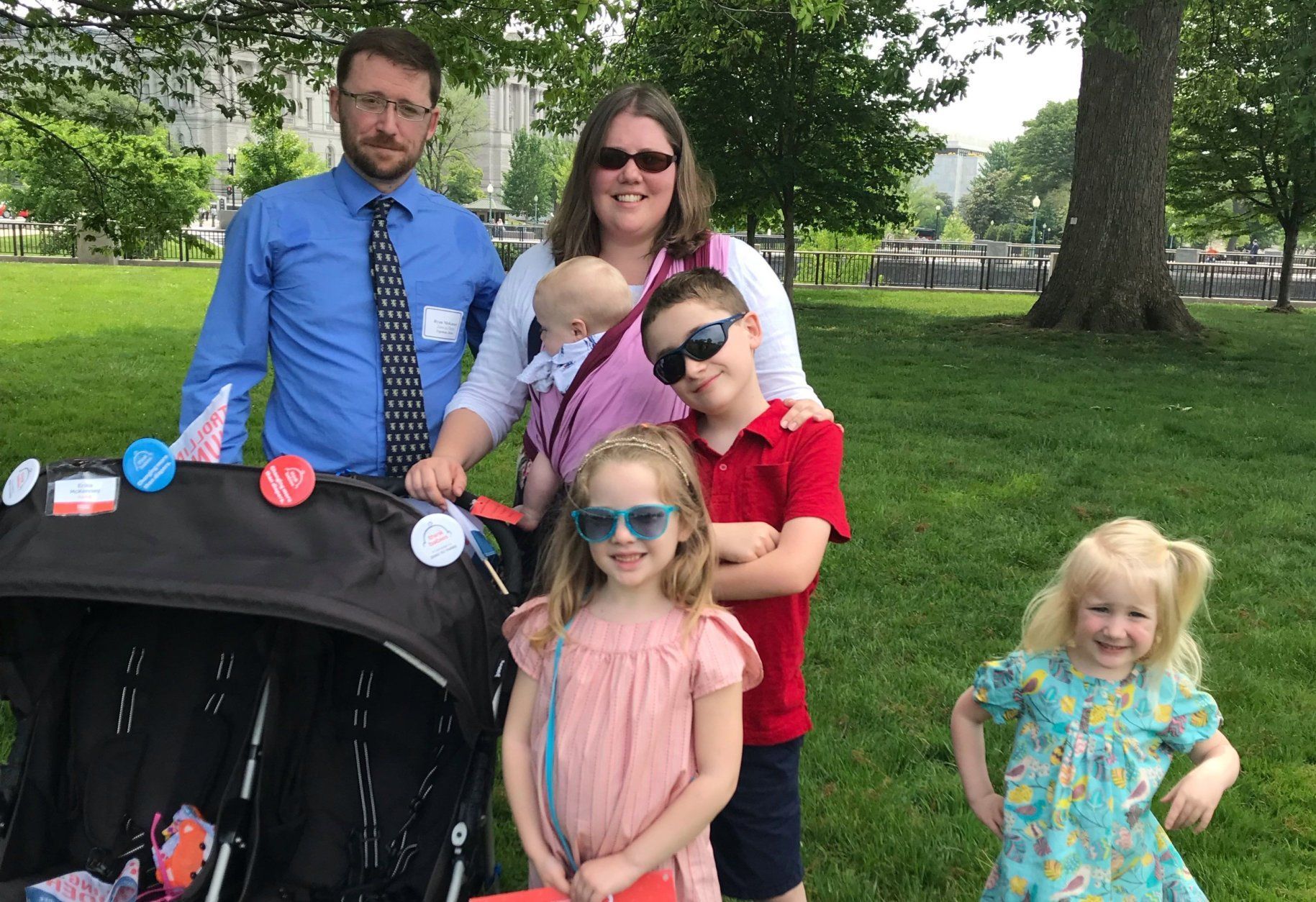
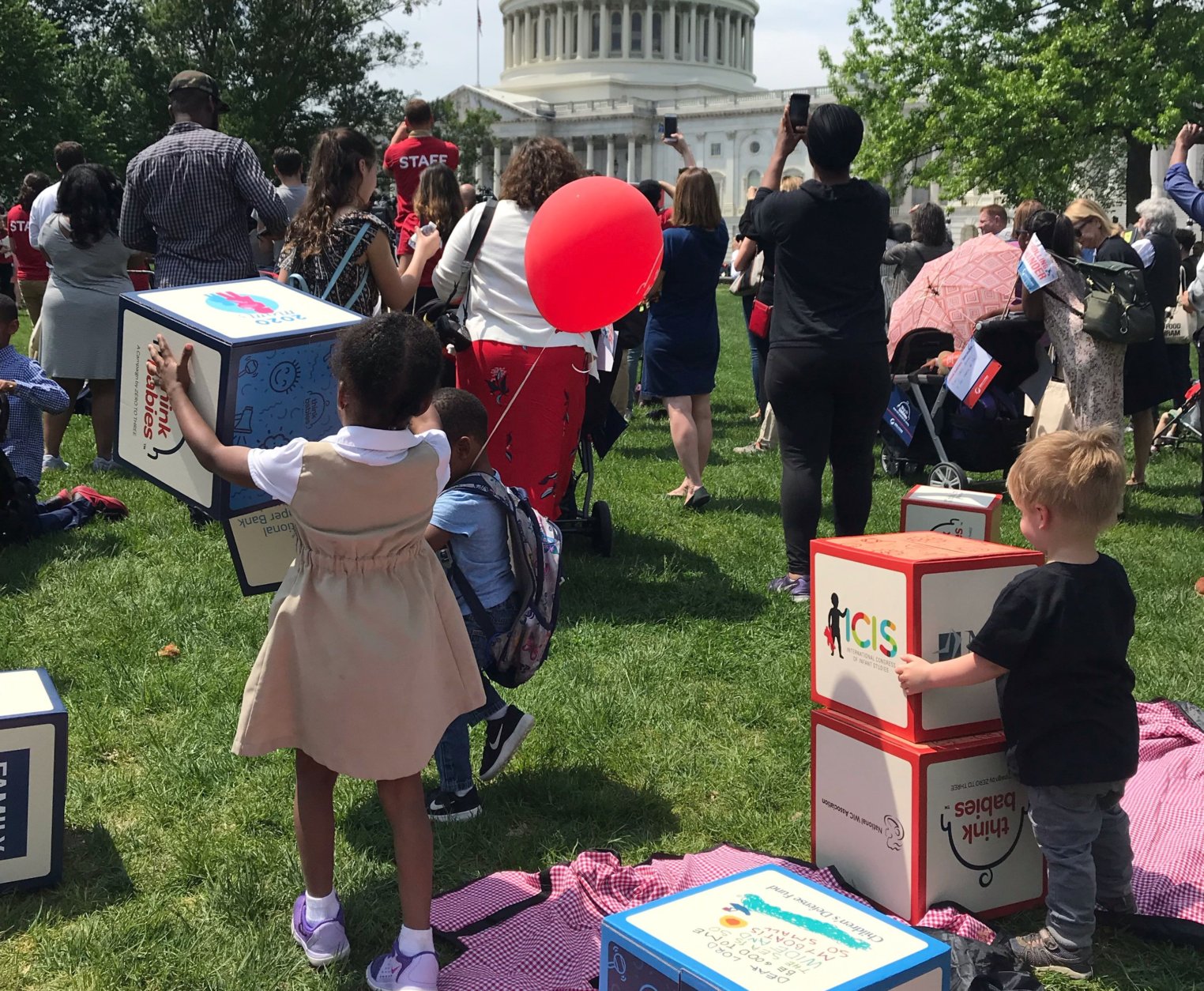
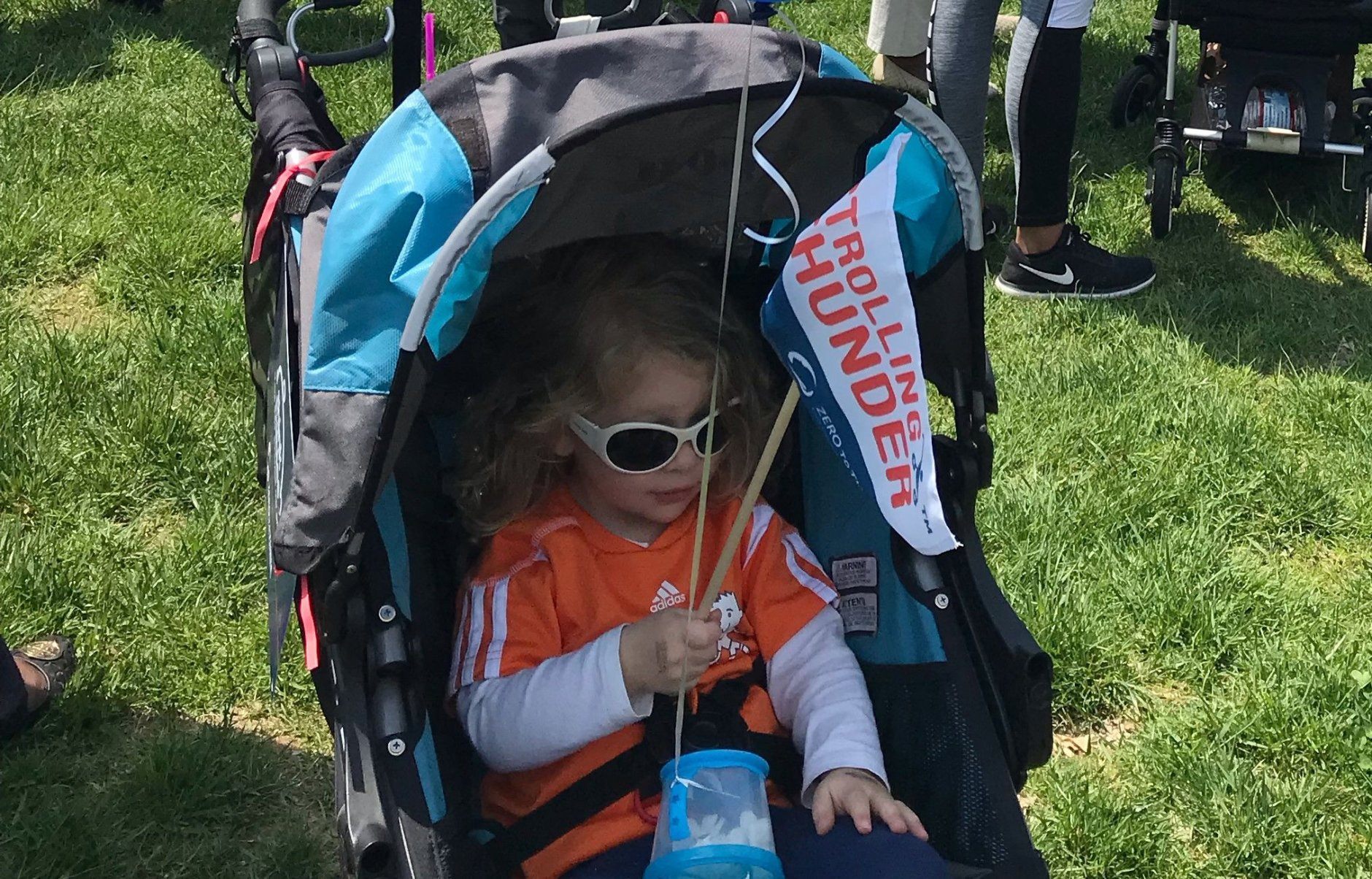
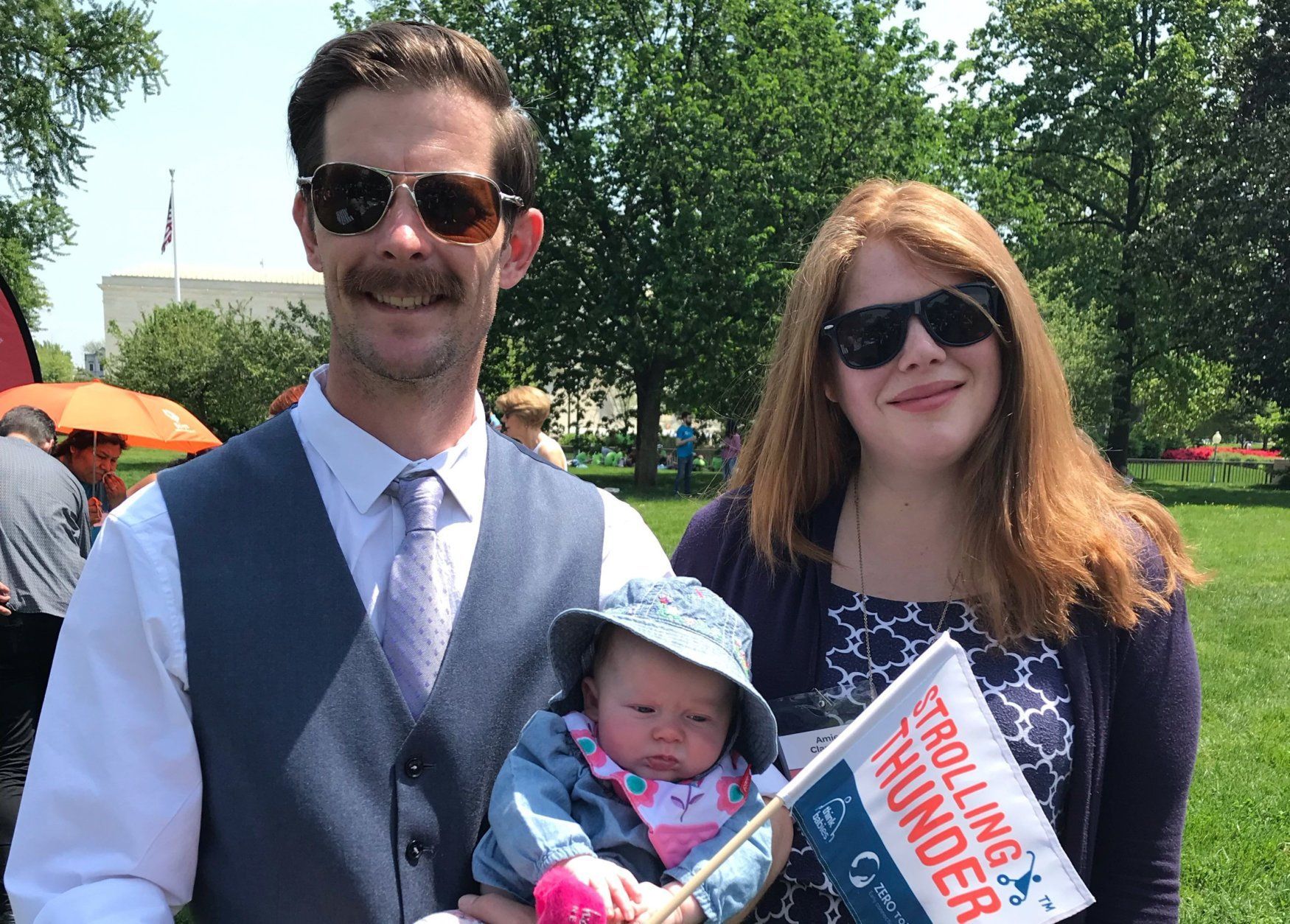
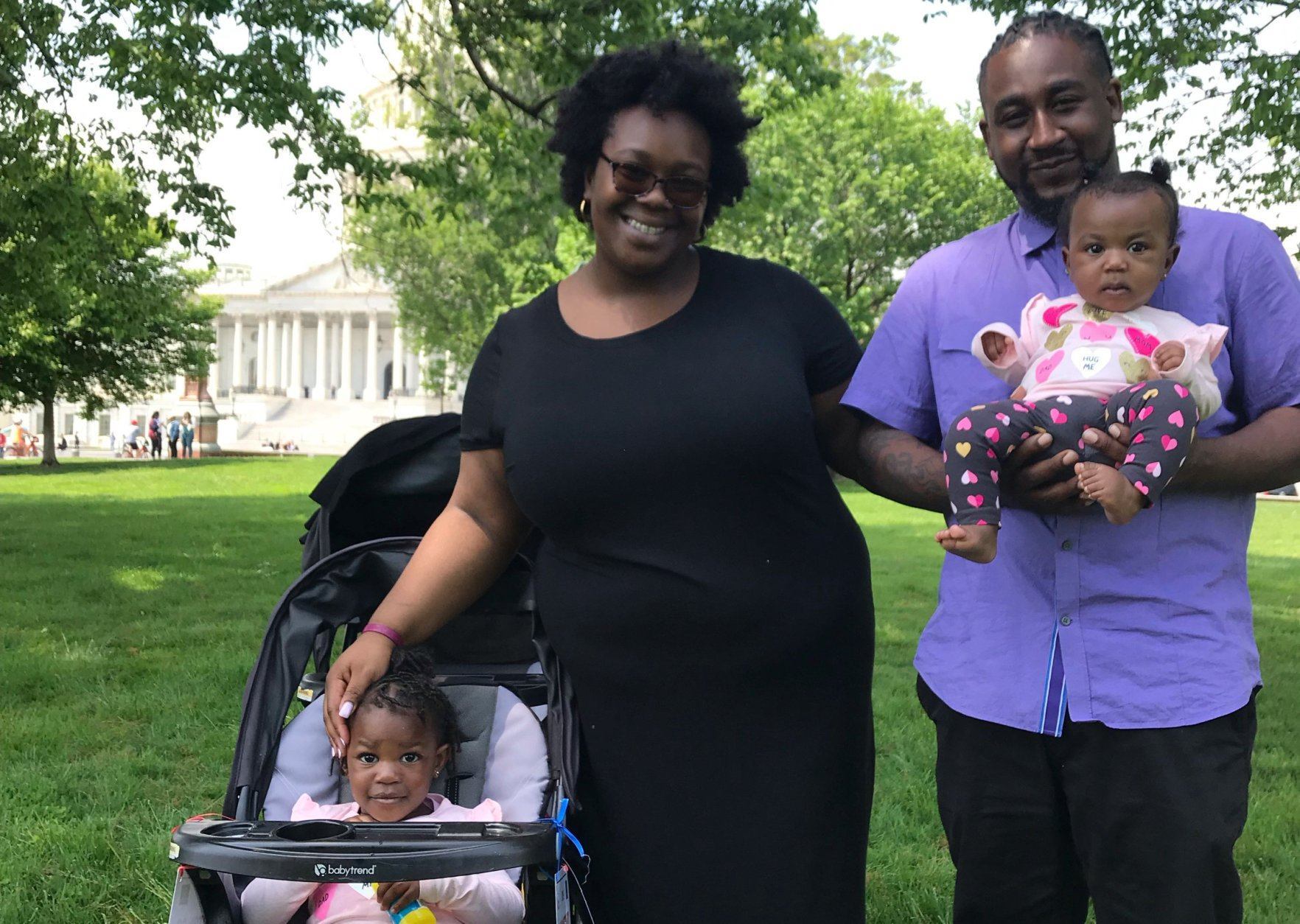

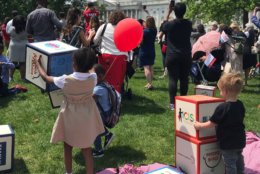
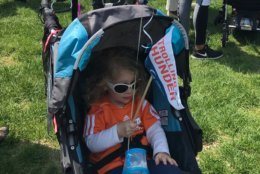


“I did some research before I came here, and if I were to decide to go back to teaching in the fall and put my four children into care … our family would lose $5,000 a year,” McKenney said.
Many other young families said they, too, have struggled to find the right balance between work and raising their kids.
Javona Brownlee and Jonathan Ware have three children — ages 6 and younger, including a baby. They live in D.C., which, according to a recent study, had the highest child care costs in the country compared with the 50 states — more than $20,000 a year. Maryland was fifth-worst in the study by the Economic Policy Institute, while Virginia was 21st.
“Child care is extremely expensive,” Brownlee said as she stood in a shady area outside of the Capitol with her baby, Knoble, and 2-year-old Kenzie in a stroller. “It really puts a strain on the family.”
Brownlee added that she had to return to work within six weeks of having her baby.
The Clampitt family feels the issue is so important that they came all the way to D.C. from Bozeman, Montana. Parents Ryan and Amie Clampitt were at the rally with their two kids, including Penelope, who is just 3 months old.
“Neither of us had any paid time [off]. And so, with both of our kids, we had to use our sick and vacation time from work,” Amie Clampitt said. “And then, once they got into day care, they got sick, and we didn’t have any sick or vacation time.”
She hopes that Congress will eventually approve paid leave so that families aren’t left in the situation they were.
Helping parents remains a priority for lawmakers, Pelosi said, adding that Congress shouldn’t keep pushing the issue to the following year.
“We have to understand that every day, every week, every month, every year in the life of a child makes a difference in that child’s future,” Pelosi said. ”So it is … imperative that we do as much as we can now.”
Various proposals related to paid leave have been circulating in Congress in recent years.
Rep. Carolyn Maloney, D-N.Y., introduced legislation in March that would provide federal employees with 12 weeks of paid leave after the birth of a child. It has the support of House Majority Leader Steny Hoyer, D-Md.
Another proposal, the FAMILY Act, would provide up to 12 weeks of paid leave for the birth of a child, as well as to care for a sick family member. The legislation, which has been repeatedly reintroduced in the Senate, is sponsored by Sen. Kirsten Gillibrand of New York, who’s seeking the Democratic presidential nomination.
Advocates often point out that the U.S. is still the only industrialized nation that doesn’t guarantee workers paid family leave.
The Family Medical Leave Act, or FMLA, requires employers with 50 or more workers to allow for 12 weeks of leave to care for a newborn. But the leave is usually unpaid.


